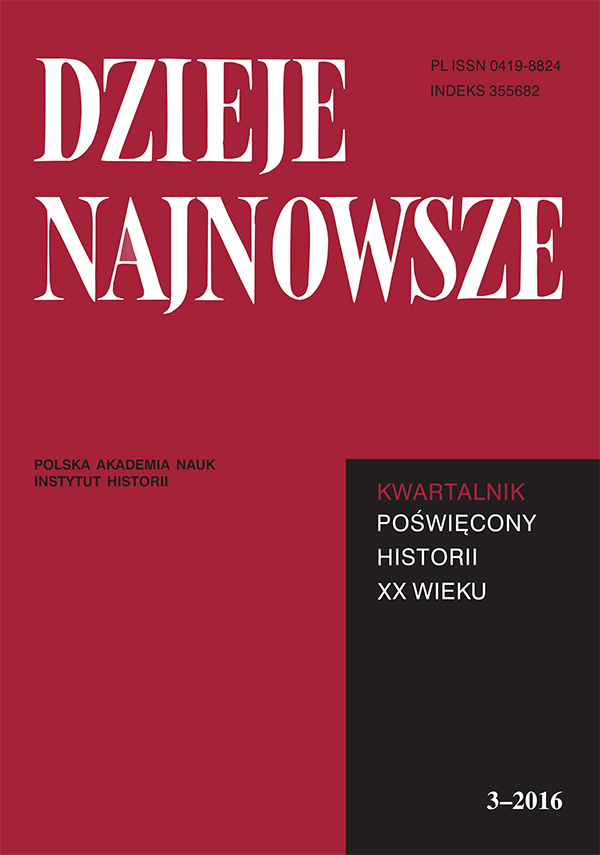Afryka Południowa i Południowo–Zachodnia w niemieckiej propagandzie kulturowej (1914–1918
South and South–West Africa in German Cultural Propaganda (1914–1918)
Author(s): Paweł ZajasSubject(s): History, Cultural history, Political history, Recent History (1900 till today), Pre-WW I & WW I (1900 -1919)
Published by: Instytut Historii im. Tadeusza Manteuffla Polskiej Akademii Nauk
Keywords: South Africa; Southwest Africa; Richard von Kühlmann; Hans Paul von Humboldt-Dachröden; Johannes Visscher; cultural propaganda; First World War;
Summary/Abstract: On July 7th 1914, the British government requested general Louis Botha to take over the German radio transmitters in Lüderitz and Swakopmund. The German forces, unable to withhold the attack any longer, surrendered on July 9th 1915. The government in Berlin, realised that winning Southwest Africa back, might prove impossible, regardless of the course of the war in Europe. By the same token, the future of the German diamond companies, united in a consortium called Diamantenregie since 1909, depended on the developing political constellation in the Union of South Africa. Since 1915, German authorities have launched a subtle diplomatic game aimed at winning the support of the South African elites and the public opinion of the country. The neutral Netherlands were the main stage of this long–term post–war policy. Due to the historical connections to South Africa, the Netherlands played an important role as a cultural and political mediator. Some members of the Dutch elites – writers, journalists, politicians – still held the pro– Boer and anti–English position when WWI broke out. This position encouraged the involvement of the Dutch elites in the German incentives regarding cultural propaganda. This paper offers insights into the so far unpublished correspondence of the main actors of the contemporary field of German propaganda. The main person under investigation is Johannes Visscher, a Dutch journalist and expert on South Africa. As editor of the journal Hollandsch Zuid– Afrika, published by Nederlandsch Zuid–Afrikaansche Vereniging (NZAV), Visscher was employed by the German diplomatic services in the years 1915–1918. As part of the activities financed by Reichskolonialamt, Visscher shaped the image of Germany in the South African press and the pro–German image of South Africa in the Dutch press.
Journal: Dzieje Najnowsze
- Issue Year: 48/2016
- Issue No: 3
- Page Range: 3-29
- Page Count: 18
- Language: Polish

